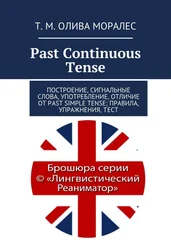John Matthews - Past Imperfect
Здесь есть возможность читать онлайн «John Matthews - Past Imperfect» весь текст электронной книги совершенно бесплатно (целиком полную версию без сокращений). В некоторых случаях можно слушать аудио, скачать через торрент в формате fb2 и присутствует краткое содержание. Жанр: Триллер, на английском языке. Описание произведения, (предисловие) а так же отзывы посетителей доступны на портале библиотеки ЛибКат.
- Название:Past Imperfect
- Автор:
- Жанр:
- Год:неизвестен
- ISBN:нет данных
- Рейтинг книги:4 / 5. Голосов: 1
-
Избранное:Добавить в избранное
- Отзывы:
-
Ваша оценка:
- 80
- 1
- 2
- 3
- 4
- 5
Past Imperfect: краткое содержание, описание и аннотация
Предлагаем к чтению аннотацию, описание, краткое содержание или предисловие (зависит от того, что написал сам автор книги «Past Imperfect»). Если вы не нашли необходимую информацию о книге — напишите в комментариях, мы постараемся отыскать её.
Past Imperfect — читать онлайн бесплатно полную книгу (весь текст) целиком
Ниже представлен текст книги, разбитый по страницам. Система сохранения места последней прочитанной страницы, позволяет с удобством читать онлайн бесплатно книгу «Past Imperfect», без необходимости каждый раз заново искать на чём Вы остановились. Поставьте закладку, и сможете в любой момент перейти на страницу, на которой закончили чтение.
Интервал:
Закладка:
Lambourne started by taking Jojo back just over three years, to when Eyran was almost eight: the last months at the old house in England. Nothing. No recall, no memories. The process was slow; Eyran left long gaps as he mentally jumped time frames and surfaced again. Lambourne prompted by mentioning their play areas by the old house: the copse and the woods at the back, the wheat field at Broadhurst Farm. But nothing triggered a memory. He decided to make the invitation more open. '… Take me back to when you first met Eyran. Was it when Eyran first moved into the house there? Were you friends together then?'
'No… it was from before.'
'Then go back further… back to when you first met.'
Only Eyran's breathing and the faint whirring of the tape reel punctuated the silence. Lambourne tapped his pen softly on his pad with the passing seconds. As Jojo panned frantically back in his mind through past events and images and almost two minutes had passed with only the sound of Eyran's breathing, now slightly more laboured — Lambourne became sure that nothing would surface. Or that Jojo's recollections would only be vague; the painful memory of losing his parents selectively erased. In the same way that Eyran didn't want to accept his parents were dead — Jojo would have no recall of his.
When Eyran finally surfaced and Jojo's voice returned, it startled Lambourne. He felt numbed, his mouth suddenly dry, and he had to consciously snap himself out, quickly adjust to the new situation and break the silence by asking the next question.
He knew that he sounded inept, hesitant — hadn't fully made the leap to what he now confronted. His palms were sticky and he was stumbling as he continued with a few rudimentary questions. For the first time he was eager to end the session, and minutes later he stopped the tape recorder and counted Eyran back awake. He needed time to himself, time to think. He didn't mention anything to Eyran or the Capels as they confirmed arrangements for the next session and said their goodbyes.
Lambourne sat back and closed his eyes, easing out a slow sigh. Now looking back, the signs had been there clearly: 'It seemed unfair that it should happen twice'…. 'It was long ago — from before.'… 'If I went back — perhaps I would remember clearer.' As much as he suspected Eyran had buried events in the past and so wouldn't want them uncovered, Jojo had been enticing him to go back throughout. Intent on only one track, he'd missed the signals.
But as the implications sank home, he realized he was out of his depth; he'd need help. Even the few closing questions had made him feel awkward: fishing in areas of psycho-analysis he'd barely touched upon. He looked at his watch. Almost three hours before he could put through a call to the University of Virginia.
SEVENTEEN
The warrant holding Machanaud was an initial detention order signed off by Perrimond for four days, the maximum any suspect could be held without an official arraignment before an Examining Magistrate.
On the fourth day, Machanaud was transported from his cell in Bauriac for a ten o’clock hearing at the Palais de Justice in Aix. Frederic Naugier was presiding, though informally dressed in a dark grey suit; his red robes would appear at later hearings. Perrimond was to one side of the room, Briant as police escort behind Machanaud, and a greffier , court clerk, sat alongside Naugier.
A young duty lawyer was dragged from the floor below to brief Machanaud on what would await him in the proceedings. During a thirty-eight minute hearing, Machanaud provided his main details for the court file, Naugier read the charges against him, and decision on bail was held over to the next hearing in ten days, by which time a state lawyer would have been appointed through the Bar Council.
At the close of the proceedings, summarily Naugier signed off a four month detention order. In that time, he had to complete the instruction process and pass the case to full trial. On murder cases, it was not uncommon for him to sign off two or three such orders. Peuch had already made it clear to Machanaud that bail was unlikely given the combination of the charge and his transient background. Whether found guilty or not at the final trial, unless dramatic new evidence came up during the instruction , Machanaud was going to spend much of the next year in prison.
Dominic had bought a TV for his mother four months previous. They were expensive, a luxury item, but it was something to keep her company, especially during his long evening shifts.
He remembered the first time he saw 'Perry Mason'. French national programming was poor, and slicker American productions predominated. The popular courtroom drama however took time to catch on in France, mainly because the proceedings depicted were alien, bore no semblance to the justice system familiar to the French.
The quick changing drama of different witnesses, surprises, change of pleas and sudden admissions would in France be spread over several months of the instruction process. Witnesses were grouped and called in different sessions, and testimony from the victim's family, the police, forensics and expert witnesses such as psychiatrists were heard in continuing separate sessions. With usually no more than two instruction hearings in any one month, the process was long and arduous, and complex cases could drag on seven to ten months before presentation to full trial.
But by that time, evidence and testimony had been boiled down to just the essential facts necessary for a jury and three judges to deliberate. Witnesses could be recalled, but their answers were now no more than distillations of their previous testimony during instruction . No rambling, no surprises, no dramatics or sudden about turn admissions. Just the core evidence the prosecution and defence wished showcased for the jury. As a result even murder trials lasted only a day or two.
Dominic had followed the early stages of Machanaud's instruction hearings. After a second hearing at which bail was refused, two weeks later Naugier summoned the Rosselots. Apart from confirming vital details about the last time they saw Christian, what he was wearing and who he had headed out to see that afternoon, Naugier had to formally ask them if they wished to press charges against the suspect held. Almost redundant, since if they had answered 'no', the State would have continued with the prosecution regardless — but it had to be recorded. Jean-Luc responded 'Of course' while Monique just nodded.
The next hearing almost a month later was to clarify police and forensic findings at the initial crime scene. Dominic was concerned the subject of Machanaud's car sighting might be raised, but the hearings were strictly structured: Naugier conducted all questioning directly and any questions proposed by the defence and prosecution had to be presented to Naugier two weeks in advance, with a full schedule of topics to be raised then made available to both sides two days before the hearing. Perrimond had gone rigorously through the schedule with Poullain and Dominic. There was nothing about the car sighting.
Though in two or three hearings time, Dominic knew that they would start to cover Machanaud's later hearings and statements, and the subject could come up. He was dreading it: having to face Machanaud and his council and change his story for Naugier.
Four days after the call from Houillon in Marseille, he'd decided to throw in the towel and told Pouillain that he wouldn't be proceeding with a complaint. Poullain wasted no time in sequestering him and Briant into his back office, closing ranks tightly by ensuring their stories matched. Poullain suggested that they both admit the meetings, but modify the details discussed. 'From what I understand, Machanaud was drunk on both occasions. I'd be surprised if he remembers exactly what was said.'
Читать дальшеИнтервал:
Закладка:
Похожие книги на «Past Imperfect»
Представляем Вашему вниманию похожие книги на «Past Imperfect» списком для выбора. Мы отобрали схожую по названию и смыслу литературу в надежде предоставить читателям больше вариантов отыскать новые, интересные, ещё непрочитанные произведения.
Обсуждение, отзывы о книге «Past Imperfect» и просто собственные мнения читателей. Оставьте ваши комментарии, напишите, что Вы думаете о произведении, его смысле или главных героях. Укажите что конкретно понравилось, а что нет, и почему Вы так считаете.












